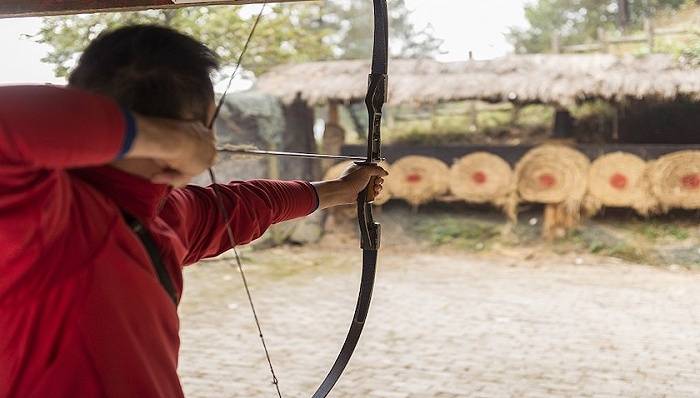
Image source: Visual China
Reporter | Fan Jiazhi Edit | Chen Feiya Reporter | Fan Jiazhi Edit | Chen Feiya A few days ago, the industry issued a “Notice on Reporting the Purchasing Data of the Fifth Batch of National Organizations for Centralized Procurement of Drugs” (hereinafter referred to as the “Notice”). The “Notice” shows that the fifth round of volume procurement involves a total of 60 varieties and 207 product specifications. Compared with the previous fourth batch of 45 products purchased in volume, the scope of drugs involved in this round of volume procurement has been further expanded, with the highest number of varieties and product specifications. After sorting out by the Jiemian News Research Department, drugs in dosage forms such as injections and inhalants will be the main varieties for the fifth round of centralized procurement. The catalogue of drugs to be collected mainly includes 30 injectables, as well as inhalants with relatively high technical barriers. If it finally enters centralized procurement, it will affect many listed companies such as Stellite (603520.SH), Joincare (600380.SH), Hengrui Medicine (600276.SH) and so on. The two major products of Stellite, the main construction contrast drug company,-iohexol injection and iodixanol injection, are included in this catalog, and will compete with Yangzijiang Pharmaceutical and other companies. According to data from Meinenet, the sales of iohexol and iodixanol both exceeded 2 billion yuan in 2019. For Stellite, these two products have been on the market for less than a year, which is bound to impact market confidence. Stellite was originally an API (API) supplier for the downstream enterprise of contrast agents. In 2012, Stellite established Shanghai Stellite Pharmaceutical Co., Ltd., officially launching the strategy of “Intermediate-API-Preparation”. In 2020, Stellite successively obtained registration approvals for iohexol injection and iodixanol injection, and officially entered the field of preparations. Joincare has two inhalation products into the catalog-budesonide inhalation and compound ipratropium bromide inhalation. It is expected that Chia Tai Tianqing, a subsidiary of China Biopharmaceutical (01177.HK), will participate in centralized procurement. These two products belong to the respiratory department and are suitable for chronic obstructive pulmonary disease (COPD) and tracheal spasm caused by airway obstruction.  Inhalation preparation is a pharmaceutical dosage form in which the drug is dissolved or dispersed in a suitable medium, through a special drug delivery device, in the form of vapor or aerosol directly into the respiratory tract and delivered to the lungs for local or systemic treatment. Its advantage lies in reducing the dosage while improving the efficacy and reducing adverse reactions. Inhaled preparations are the drugs of choice for respiratory diseases such as asthma and chronic obstructive pulmonary disease (COPD).
Inhalation preparation is a pharmaceutical dosage form in which the drug is dissolved or dispersed in a suitable medium, through a special drug delivery device, in the form of vapor or aerosol directly into the respiratory tract and delivered to the lungs for local or systemic treatment. Its advantage lies in reducing the dosage while improving the efficacy and reducing adverse reactions. Inhaled preparations are the drugs of choice for respiratory diseases such as asthma and chronic obstructive pulmonary disease (COPD).
Inhaled preparations have relatively high technical barriers, and have the characteristics of difficult research and development and high patent barriers. The domestic inhalation preparation market has long been monopolized by three multinational pharmaceutical companies, AstraZeneca (AZ), GlaxoSmithKline (GSK), and Boehringer Ingelheim (BI). The market generally expects that domestic generic drugs will quickly complete domestic substitution, and the fifth batch of centralized procurement may accelerate this process.
Hengrui Medicine’s anti-tumor line product docetaxel injection, anesthesia line product ropivacaine, gastroenterology product glycopyrrolate injection and other varieties are also included in this catalog. According to data from Yaozhi.com, the sales of docetaxel in 2018 reached 1.823 billion yuan, which is the highest-selling anti-tumor drug in China; Hengrui Pharmaceuticals docetaxel was approved for listing in 2002, with sales of 835 million yuan in 2018, with a market share Up to 45.82%.
Docetaxel is a traditional cytotoxic anti-tumor drug. “Traditional cytotoxic drugs-small molecule targeted drugs-biological drugs” is the future trend of the domestic oncology drug market. Docetaxel sales have begun to slowly decline from the peak. It is expected The fifth batch of centralized procurement will further accelerate this trend. Beginning in 2019, Hengrui Medicine also launched biologics such as carrelizumab (PD-1) to meet the market demand for anti-tumor drugs.
In addition, pharmaceutical companies such as Hisun Pharmaceutical (600267.SH), Kelun Pharmaceutical (002422.SZ), Lepu Medical (300003.SZ), and Xinlitai (002294.SZ) are also involved.
In addition to the above-mentioned domestic companies, AstraZeneca is the foreign-funded pharmaceutical company with the most variety of shortlisted products. Its subsidiaries include esomeprazole sodium for injection, budesonide suspension for inhalation, metoprolol tartrate, and sagrelide Many well-known varieties such as Ting were shortlisted, Sanofi’s two major tumor products oxaliplatin and docetaxel were shortlisted, Bayer’s core product anticoagulant Rivaroxaban was shortlisted, and Fresenius Kabi was shortlisted for multiple anesthetic varieties.
Unexpectedly, the fifth batch of centralized procurement does not cover the previously expected high-expected biological agents such as insulin and proprietary Chinese medicines. Different from traditional generic drugs, biological products and proprietary Chinese medicines are unable to carry out drug consistency evaluation due to their special composition, and relevant hypoglycemic drug companies can take a breather temporarily.
According to the timetable given in the document, the state-organized drug centralized procurement comprehensive service platform will complete the pre-purchasing volume of related drugs by medical institutions in various provinces and cities on April 30. It can be speculated that the fifth batch of centralized procurement will officially “start” around June this year.





























































You must log in to post a comment.